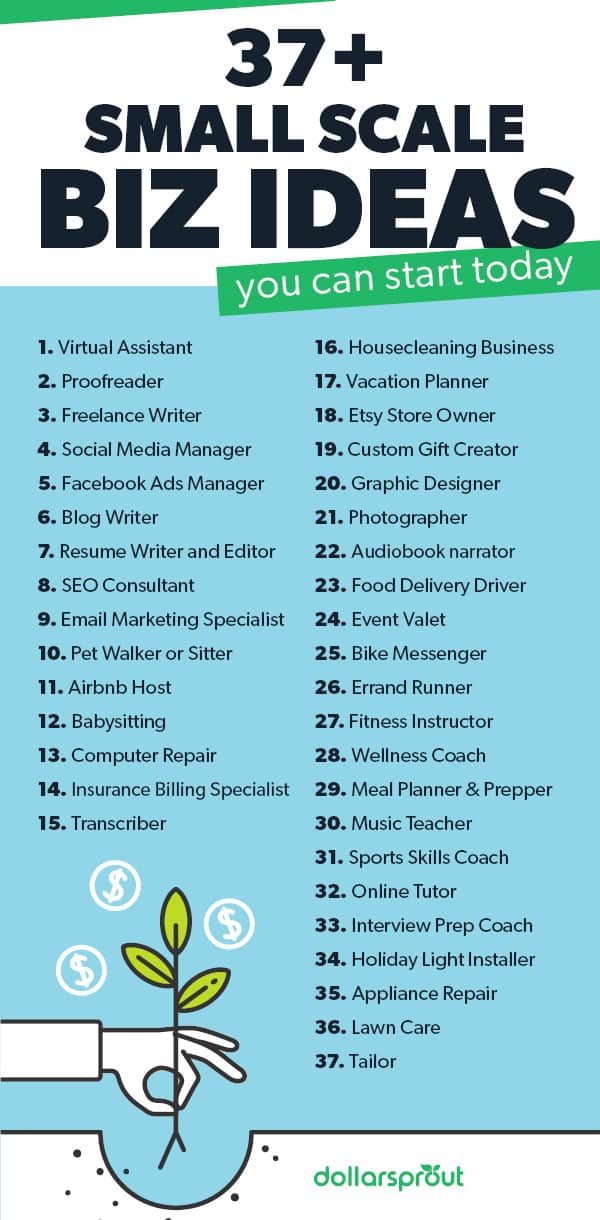Why Unconventional Business Ideas Matter in Education
Encouraging creativity and entrepreneurship in schools is essential for fostering innovative thinking and preparing students for the challenges of the 21st century. By embracing unconventional business ideas, students can develop a unique perspective on problem-solving, critical thinking, and collaboration. This approach can also help students identify opportunities and create solutions that address real-world problems, making them more attractive to potential employers and investors.
Incorporating unique business ideas for school projects can also help students develop essential skills such as adaptability, resilience, and self-motivation. By exploring unconventional business ideas, students can learn to navigate uncertainty, manage risk, and pivot when necessary. These skills are highly valued in the business world and can give students a competitive edge in the job market.
Moreover, unconventional business ideas can help students develop a deeper understanding of their community and its needs. By identifying gaps in the market and creating innovative solutions, students can make a positive impact on their community and develop a sense of social responsibility. This approach can also help students develop a more nuanced understanding of the business world and its role in shaping society.
Furthermore, embracing unconventional business ideas can help schools stay relevant and competitive in a rapidly changing world. By incorporating innovative and creative concepts into their curriculum, schools can attract top talent, foster a culture of innovation, and prepare students for success in an increasingly complex and interconnected world.
In conclusion, unconventional business ideas have the potential to transform the way we approach education and entrepreneurship. By embracing this approach, students can develop essential skills, make a positive impact on their community, and prepare themselves for success in the business world.
How to Identify a Unique Business Opportunity
Identifying a unique business opportunity is a crucial step in developing a successful business idea for a school project. To increase the chances of success, it’s essential to research market trends, understand consumer needs, and brainstorm innovative solutions. Here are some tips to help students identify a unique business opportunity:
Research market trends: Start by researching current market trends, including consumer behavior, industry developments, and emerging technologies. This will help students identify gaps in the market and potential areas for innovation. Utilize online resources, such as market research reports, industry publications, and social media, to stay informed about the latest trends.
Understand consumer needs: Understanding consumer needs is critical to developing a successful business idea. Students should conduct surveys, focus groups, or interviews to gather information about consumer preferences, pain points, and behaviors. This will help them identify areas where they can create value and meet consumer needs.
Brainstorm innovative solutions: Once students have researched market trends and understood consumer needs, they can start brainstorming innovative solutions. Encourage them to think outside the box and consider unconventional ideas. Use techniques such as mind mapping, SCAMPER (Substitute, Combine, Adapt, Modify, Put to Another Use, Eliminate, and Rearrange), or reverse brainstorming to generate a wide range of ideas.
Evaluate ideas: After generating a list of ideas, students should evaluate each one based on feasibility, potential for growth, and alignment with their interests and skills. Encourage them to consider factors such as competition, market size, and potential revenue streams.
Refine and iterate: Once students have selected a business idea, they should refine and iterate on it. Encourage them to gather feedback from peers, mentors, and potential customers to validate their idea and identify areas for improvement.
By following these steps, students can increase their chances of identifying a unique business opportunity that has the potential to succeed. Remember to encourage them to think creatively, take calculated risks, and be open to learning and iteration.
Product-Based Business Ideas for Students
Product-based business ideas are a great way for students to showcase their creativity and entrepreneurial skills. These types of businesses involve creating and selling physical products, which can be a fun and rewarding experience for students. Here are some product-based business ideas suitable for school projects:
Artisanal Foods: Students can create and sell artisanal foods such as baked goods, jams, or chocolates. This type of business idea allows students to showcase their culinary skills and creativity. With the rise of farmers’ markets and food festivals, artisanal foods are in high demand.
Handmade Crafts: Students can create and sell handmade crafts such as jewelry, candles, or textiles. This type of business idea allows students to showcase their artistic skills and creativity. With the rise of online marketplaces such as Etsy, handmade crafts are in high demand.
Eco-Friendly Products: Students can create and sell eco-friendly products such as reusable bags, beeswax wraps, or bamboo toothbrushes. This type of business idea allows students to showcase their commitment to sustainability and environmental responsibility.
Customized Products: Students can create and sell customized products such as t-shirts, mugs, or phone cases. This type of business idea allows students to showcase their creativity and attention to detail. With the rise of online marketplaces such as Redbubble, customized products are in high demand.
When it comes to product-based business ideas, it’s essential to consider the feasibility and potential for success. Students should research their target market, competition, and potential revenue streams before deciding on a product-based business idea. With the right idea and execution, product-based businesses can be a great way for students to develop their entrepreneurial skills and create a successful business.
Some popular platforms for selling product-based business ideas include:
Etsy: A online marketplace for handmade and vintage items.
Redbubble: A online marketplace for customized products such as t-shirts, mugs, and phone cases.
Shopify: A e-commerce platform for creating and selling online stores.
By utilizing these platforms, students can reach a wider audience and increase their chances of success.
Service-Based Business Ideas for the Classroom
Service-based business ideas are an excellent way for students to develop their skills and provide value to their community. These types of businesses involve offering services to customers, which can be a great way to earn money and build a reputation. Here are some service-based business ideas suitable for school projects:
Tutoring: Students can offer tutoring services to their peers or younger students in subjects they excel in. This type of business idea allows students to develop their teaching skills and build confidence.
Pet-Sitting: Students can offer pet-sitting services to pet owners in their community. This type of business idea allows students to develop their animal care skills and build trust with pet owners.
Event Planning: Students can offer event planning services to help plan and execute events such as birthday parties, weddings, or corporate events. This type of business idea allows students to develop their organizational skills and attention to detail.
Photography: Students can offer photography services to capture special moments for clients. This type of business idea allows students to develop their creative skills and build a portfolio.
When it comes to service-based business ideas, it’s essential to consider the potential for growth and community engagement. Students should research their target market, competition, and potential revenue streams before deciding on a service-based business idea. With the right idea and execution, service-based businesses can be a great way for students to develop their skills and provide value to their community.
Some popular platforms for promoting service-based business ideas include:
Social media: Utilize social media platforms such as Instagram, Facebook, and Twitter to promote services and engage with potential customers.
Online directories: List services in online directories such as Craigslist or local business listings to reach a wider audience.
Word-of-mouth: Encourage satisfied customers to spread the word about services to build a reputation and attract new customers.
By utilizing these platforms, students can increase their visibility and attract more customers to their service-based business.
Utilizing Technology to Launch a Business
Technology has revolutionized the way businesses operate, and it’s now easier than ever for students to launch a business using digital tools. With the rise of e-commerce, social media, and online marketplaces, students can reach a global audience and manage their operations with ease.
Social Media: Social media platforms such as Instagram, Facebook, and Twitter are essential for any business. Students can use these platforms to promote their products or services, engage with customers, and build a brand. By creating a strong online presence, students can increase their visibility and attract more customers.
Online Marketplaces: Online marketplaces such as Etsy, eBay, and Amazon provide students with a platform to sell their products to a global audience. These marketplaces offer a range of tools and services to help students manage their sales, marketing, and logistics.
Digital Tools: Digital tools such as website builders, email marketing software, and project management tools can help students manage their business operations with ease. These tools can help students create a professional website, manage their email marketing campaigns, and track their progress.
E-commerce Platforms: E-commerce platforms such as Shopify, WooCommerce, and BigCommerce provide students with a range of tools and services to help them launch and manage an online store. These platforms offer features such as payment processing, inventory management, and shipping integration.
When it comes to utilizing technology to launch a business, it’s essential to consider the potential for growth and scalability. Students should research their target market, competition, and potential revenue streams before deciding on a technology platform. With the right technology and execution, students can launch a successful business and reach a global audience.
Some popular technology platforms for launching a business include:
Shopify: A popular e-commerce platform that offers a range of tools and services to help students launch and manage an online store.
Wix: A website builder that offers a range of templates and design tools to help students create a professional website.
Hootsuite: A social media management tool that offers a range of features to help students manage their social media presence.
By utilizing these technology platforms, students can launch a successful business and reach a global audience.
Real-Life Examples of Successful Student-Led Businesses
There are many inspiring stories of students who have successfully launched and run their own businesses. These stories demonstrate the potential for students to develop innovative business ideas and turn them into successful ventures.
One example is a student-led business that created a mobile app for tracking personal finances. The app, called “MoneyMate,” was developed by a team of high school students who were passionate about personal finance and technology. The app quickly gained popularity and was featured in several major publications.
Another example is a student-led business that created a sustainable fashion brand. The brand, called “EcoCycle,” was founded by a group of college students who were passionate about sustainability and fashion. The brand quickly gained a following and was featured in several major fashion publications.
A third example is a student-led business that created a tutoring platform for students. The platform, called “TutorMe,” was developed by a team of high school students who were passionate about education and technology. The platform quickly gained popularity and was featured in several major education publications.
These examples demonstrate the potential for students to develop innovative business ideas and turn them into successful ventures. They also highlight the importance of encouraging creativity and entrepreneurship in schools.
When it comes to launching a successful student-led business, there are several key factors to consider. These include:
Identifying a unique business opportunity: This involves researching market trends and identifying a gap in the market that can be filled with a new product or service.
Developing a solid business plan: This involves creating a comprehensive plan that outlines the business’s goals, target market, and financial projections.
Securing funding: This involves identifying potential sources of funding, such as investors or grants, and developing a plan to secure the necessary funds.
Building a strong team: This involves identifying and recruiting talented individuals who share the business’s vision and are committed to its success.
By considering these factors and developing a solid business plan, students can increase their chances of launching a successful business and achieving their entrepreneurial goals.
Overcoming Common Challenges in Student-Led Businesses
Starting a business can be a daunting task, especially for students who are new to entrepreneurship. Despite the excitement and potential of unique business ideas for school projects, students often face common challenges that can hinder their progress. By understanding these obstacles and developing strategies to overcome them, students can set their businesses up for success and achieve their goals.
One of the most significant challenges students face is time management. Balancing schoolwork, extracurricular activities, and a business can be overwhelming, leading to burnout and decreased productivity. To overcome this, students can create a schedule that prioritizes tasks, sets realistic goals, and allocates specific times for business-related activities. By staying organized and focused, students can manage their time effectively and make the most of their entrepreneurial endeavors.
Another common challenge is funding. Many students lack the financial resources to launch and grow their businesses. To address this, students can explore alternative funding options, such as crowdfunding, grants, or sponsorships. They can also consider bootstrapping, which involves using personal savings or revenue from early customers to fund their business. By being resourceful and creative, students can secure the funding they need to bring their unique business ideas to life.
Self-doubt and fear of failure are also significant obstacles that students may face. It’s natural to feel uncertain or intimidated when starting a business, but these emotions can hold students back from achieving their full potential. To overcome self-doubt, students can surround themselves with supportive peers, mentors, or family members who can offer guidance and encouragement. They can also focus on their strengths, celebrate their successes, and learn from their failures. By developing a growth mindset and embracing challenges as opportunities for growth, students can build confidence and perseverance.
Finally, students may struggle with marketing and promoting their businesses. With so many unique business ideas for school projects competing for attention, it can be difficult to stand out and attract customers. To overcome this, students can leverage social media, online marketplaces, and other digital tools to reach their target audience. They can also develop a strong brand identity, create engaging content, and build relationships with potential customers. By being proactive and creative in their marketing efforts, students can generate buzz and drive sales for their businesses.
By acknowledging and addressing these common challenges, students can overcome the obstacles that stand in their way and achieve success with their unique business ideas for school projects. With persistence, creativity, and a willingness to learn, students can turn their entrepreneurial visions into reality and make a lasting impact in their communities.
Measuring Success and Scaling Your Business
Evaluating the success of a student-led business is crucial to its growth and sustainability. By tracking key metrics and implementing strategies for scaling, students can ensure their unique business ideas for school projects continue to thrive. In this section, we will explore the essential metrics to track and provide guidance on how to scale and expand operations.
Key Performance Indicators (KPIs) are quantifiable measures that help students assess their business’s progress. Some essential KPIs to track include:
- Revenue growth: Monitor the increase in sales and revenue over time.
- Customer acquisition: Track the number of new customers and the cost of acquiring them.
- Customer retention: Measure the percentage of customers retained over time.
- Profit margins: Calculate the difference between revenue and costs.
- Website traffic and social media engagement: Monitor online presence and engagement.
By regularly tracking these KPIs, students can identify areas of strength and weakness, make data-driven decisions, and adjust their strategies accordingly.
Scaling a business requires careful planning and execution. To scale successfully, students should focus on the following strategies:
- Develop a growth plan: Outline specific goals, objectives, and timelines for expansion.
- Build a strong team: Recruit and train a team of dedicated and skilled individuals to help manage the business.
- Invest in technology: Leverage digital tools and platforms to streamline operations, improve efficiency, and enhance customer experience.
- Expand marketing efforts: Develop a comprehensive marketing strategy to reach new customers and increase brand awareness.
- Monitor finances: Maintain a close eye on cash flow, manage expenses, and secure funding to support growth.
By implementing these strategies, students can successfully scale their unique business ideas for school projects and achieve long-term success.
In addition to scaling, students should also focus on continuous improvement and innovation. This can be achieved by:
- Conducting market research: Stay up-to-date with industry trends, customer needs, and competitor activity.
- Gathering feedback: Collect feedback from customers, peers, and mentors to identify areas for improvement.
- Experimenting with new ideas: Encourage a culture of innovation and experimentation to stay ahead of the competition.
By embracing a culture of continuous improvement and innovation, students can ensure their businesses remain competitive, relevant, and successful in the long term.






